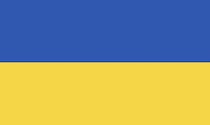The Russia-Ukraine war
Observations

The media is saturated with content on Ukraine, by historians, political scientists, retired generals and diplomats with considered observations of geopolitics and of Russia and its dictator. I do no more than to add two sites that draw in the views of a diverse range of experts, whose opinions have common threads.
Stan Grant and his colleagues at the ABC have put together a 45-minute program, Putin’s War, with contributions from political, military, and legal experts. At its core (from 15:40 to 30:50) is a panel discussion on the geopolitics of the conflict and its consequences. Gorana Grgic from Zagreb’s United States Studies Center describes how the conflict is precipitating a fundamental change in the world economic and security order, while Moscow-based military analyst Pavel Felgenhauer goes into some of the military detail.
The program starts with Isabella Higgins’ observations on the ground in Lviv, followed by a short biography of Putin and Julie Bishop’s observations based on her interactions with him as foreign minister. The impression that comes across is of a highly intelligent person who has carefully calculated his moves, even if he has underestimated the extent of Ukraine resistance and the strength of European resolve.
The panel discussion is followed with Geoffrey Robinson’s perspectives from the viewpoint of international law, and by Bill Browder’s explanation of how sanctions against oligarchs in line with the Magnitsky Act can have real consequences.
No one expects to see a quick resolution or an uprising against Putin. There could be a 10-year Vietnam-style protracted war, as historian Yuval Noah Harari suggests, and in the medium term Russia will experience severe economic damage.
Another set of observations, mainly from the perspective of US experts, is in a forum convened in Harvard’s Kennedy School, summarized in the Harvard Gazette: Why peace in Ukraine isn’t coming soon, with links to panellists’ writings on the conflict. Their understanding of the situation, and the possible path it will take, align with the views of the people interviewed by Stan Grant.
History
The west looked the other way when Russia – the USSR in earlier times – invaded Afghanistan, Chechnya, Georgia and Syria, but there is something different about Ukraine: it is in Europe.
Postwar Europe has not been spared from Russian aggression. Older people will remember the Soviet invasion of Hungary in 1956, and some may remember the water polo fight between the Hungarian and USSR teams at the Melbourne Olympics. The Guardian has reproduced some press reports of the time. Twelve years later the USSR invaded Czechoslovakia.
At the time of these invasions the predominant narrative was that this was the behaviour of communist Russia. Rid Hungary and Czechoslovakia of communism, and the people would enjoy the wonders of freedom under a capitalist lifestyle. By extension the political right linked socialism and the left generally with the domestic and foreign brutality of Stalin’s Russia, conveniently ignoring the fact that the USSR had inherited Czarist Russia’s imperialism.
In fact the insurgents in Hungary and Czechoslovakia were themselves communists. A full account of the enthusiasm of reforming Hungarian communists is given in Hannah Arendt’s 1958 essay “Totalitarian imperialism: reflections on the Hungarian revolution”.[1]
Communism has gone from Europe, but Russia is still there.
The other thing that has not changed is Russia’s ultimate threat, impeding western intervention. As Ross Johnson of the Lincoln Center wrote in 2016, when he looked back at USSR bullying in Europe, “the U.S and other Western governments were deterred from intervention by the reality of a nuclear Soviet Union with local military control”.
1. Hannah Arendt, “Totalitarian imperialism: reflections on the Hungarian revolution”, The Journal of Politics, Vol 20, #1, Feb 1958. No easy download.↩